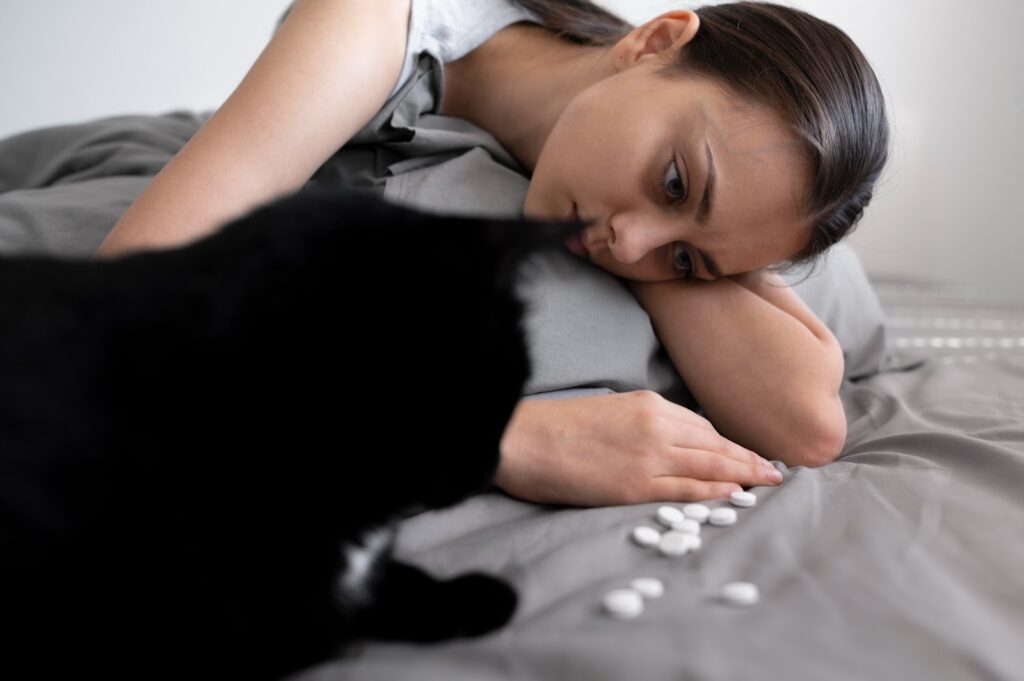Will Effexor help me sleep? If you consume it to treat severe depressive illness, then you will be wondering about that issue. On the other hand, consuming that medication might put one’s health at risk since it includes components that have been shown to cause a variety of adverse consequences.
Indeed, so what precisely is this drug? What are the potential adverse effects? All of these questions are answered in the rest of this article. If you’re curious, take a look at the following!
Understanding the Medicine’s Explanation That Makes People Wonder “Will Effexor Help Me Sleep?”
Adults suffering from severe depressive illness may use the medication Effexor. Moreover, Venlafaxine is the generic name of this medication. This drug was produced by Pfizer and belongs to the class of antidepressants, SNRIs. However, there is another kind of drug known as Effexor XR and the subtypes of Venlafaxine.
Effexor XR is available in capsule form for prolonged release, while the original Effexor was an instant-release tablet. Furthermore, when it comes to their applications, both varieties are excellent for treating social phobia, generalized anxiety disorder (GAD), and panic disorders.
There is a concern that arises, “Will Effexor help me sleep?” even though its usage is beneficial in treating depression and anxiety. Moreover, the general and specific applications of this medication are connected to this issue of the drugs. Nevertheless, one of the medications that some people take nowadays is Effexor.
What Some People Can Do with Effexor
Effexor was legalized by the Food and Drug Administration (FDA) in 1993 for the treatment of depression at a dosage of one tablet daily. Thus, Effexor XR is the only one that is available right now. Nonetheless, evidence suggests that many individuals continue to use it today due to its usefulness in treating depression.
Moreover, Effexor is effective in reducing the risk of depression and anxiety. According to research, one of the chemical compounds is Venlafaxine, a serotonin and norepinephrine reuptake inhibitor (SNRI) that prevents depression and anxiety by keeping serotonin levels in the brain healthy.
Effexor has effectively treated several illnesses but has not yet received approval for use in others. The following are some of the drug-related issues that have been raised:
1. Debilitating Migraines
The altered migraine treatment recommendations findings were presented at the American Academy of Neurology annual conference in April 2012. It was shown by the Jefferson Headache Center at Thomas Jefferson University in Philadelphia, a neurologist.
Moreover, Effexor, a new medicine, was introduced at the meeting and later published in the Neurology journal.
2. Diabetic Peripheral Neuropathic Pain
According to a study published in 2010 by American Family Physician, Venlafaxine, an antidepressant, has potential as a treatment for peripheral neuropathic pain associated with diabetes. For example, research published in 2004 in the journal Pain cites this.
It continuously says that those with diabetic neuropathy might have a lot less discomfort with large doses of Venlafaxine. Additionally, further reviews exist, for example, the 2007 Cochrane review.
The analysis summarised findings from three short research studies that examined the drug’s effectiveness in treating diabetic neuropathy. After that, researchers discovered that Venlafaxine worked similarly to tricyclic antidepressants in lowering pain. For example, amoxapine or desipramine.
3. Hot Flashes
Venlafaxine is also helpful as an off-label treatment of hot flashes associated with menopause. Then, a study published in the Journal of the American Medical Association in 2006 showed that women taking the drug reported 60% fewer hot flashes.
Later, the study found that the drug worked best at high doses, meaning there was an increased risk of side effects. Therefore, women should carefully consider the risks and benefits.
Do you often wonder, “Will Effexor help me sleep?” Even if the medicine has many other applications, this one is relevant. If usefulness is not the only consideration, then what else may? This medicine has a particular formation.
The Drug Reactions that Lead People to Ask “Will Effexor Help Me Sleep?” Question
If you wonder if, will Effexor help me sleep, there are some reasons why individuals inquire about it. However, The most common reason that individuals ask this question is because of the adverse effects that Effexor may induce.
Considering this, is it true that Effexor may make it easier for someone to go to sleep? Consuming Effexor, and Effexor XR in particular, may result in several different sorts of adverse effects, including:
1. More Common Reactions
- Parched lips
- Sexual desire reduced
- Unusual discharge of sperm
- Diminished hunger
- Constipation
- A problem in getting an erection
- Fragility
- Lightheadedness feeling
- Feeling nausea
- Drowsiness
- Stomachache
- Pain, heat, loss of feeling, or tingling in a specific area of the body
- Sweating or night sweat
2. Major Adverse Reactions
- Diseases of the lungs and pneumonia
- Symptoms of withdrawal
- Seizures
- Problems with serotonin
- Excessive pressure
- Insomnia or sleeping trouble
- Deficiency in blood flow
- Pain in the head
- Gaining or losing weight
- Low sodium level
- There is an elevated danger of suicidal thoughts and actions among young adults and children
- Allergic
Well, Effexor does cause sleeplessness, as mentioned above. As a result, it relates to whether Effexor can improve sleep quality. Nevertheless, the answer is no.
Abnormal leg movements are one of the sleep problems that may be caused by the Venlafaxine content, according to a PubMed study. Moreover, based on the study, 17.8% of Effexor XR users reported sleeplessness.
Get it Right to Take Drugs So You Can Find the Best Solution!
So, in conclusion, the question is, “Will Effexor help me sleep?” has it been answered? Of course, yes. An example is the challenge some individuals have falling or staying asleep as a side effect of Effexor medication. Nevertheless, some continue to use it while knowing that it poses serious health risks.
Another explanation is that research shows that twelve percent to thirty-one percent of individuals still experience drowsiness. Simply, Venlafaxine is not intended to treat, cure, or alleviate trouble sleeping or any sleep-related illness. So, Effexor should not be used carelessly. Thus, it is best to seek another solution than taking it.



